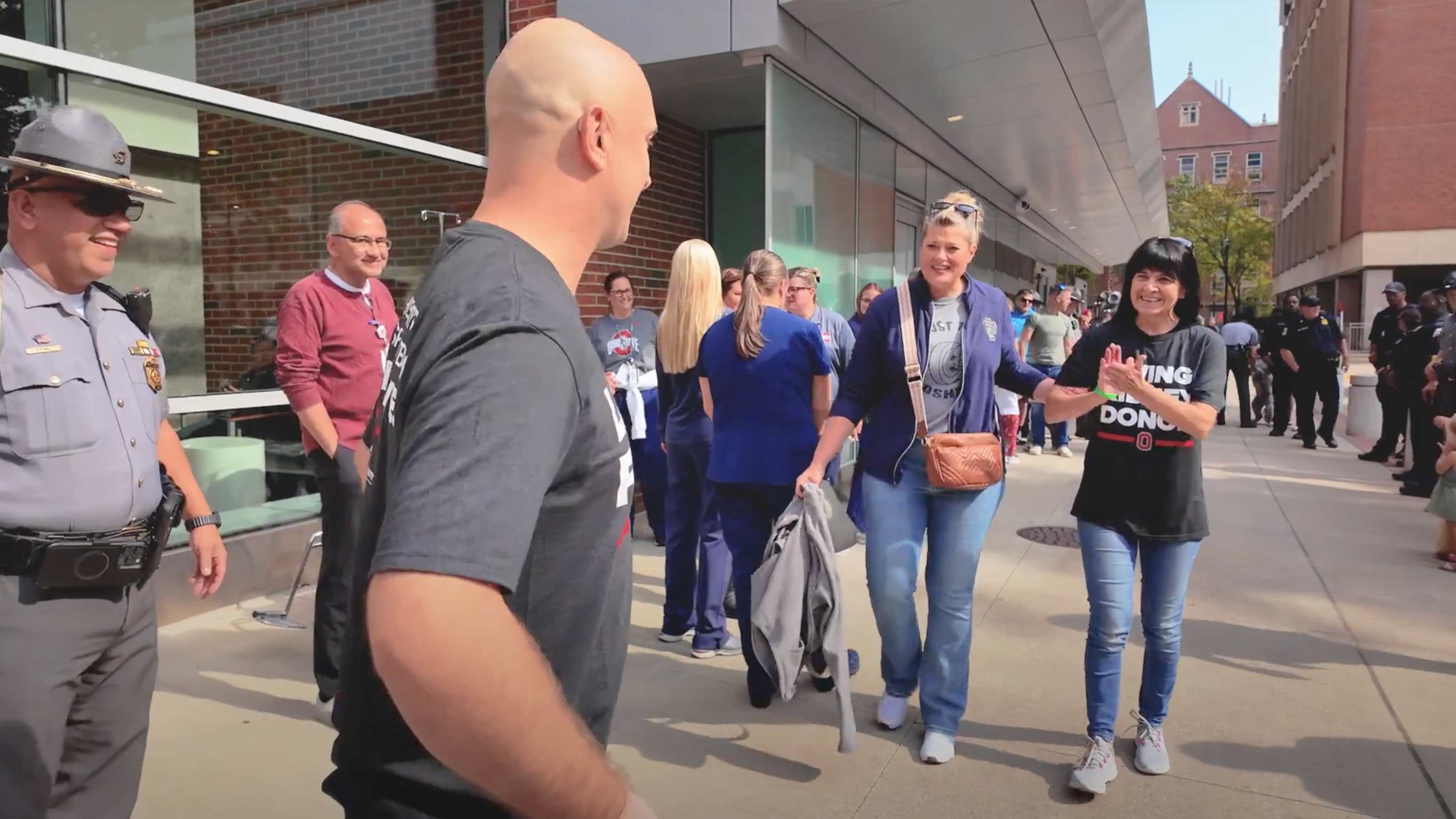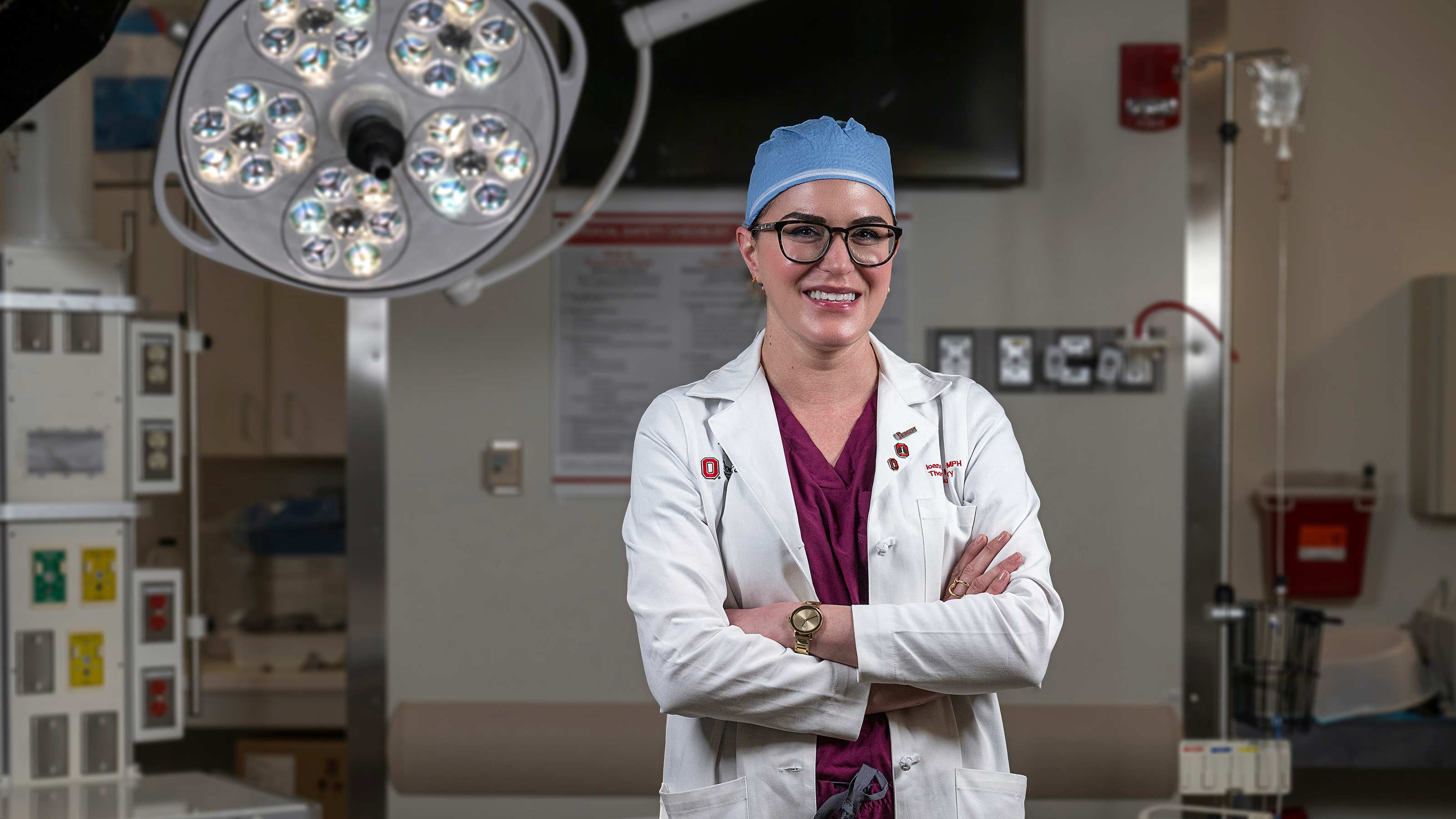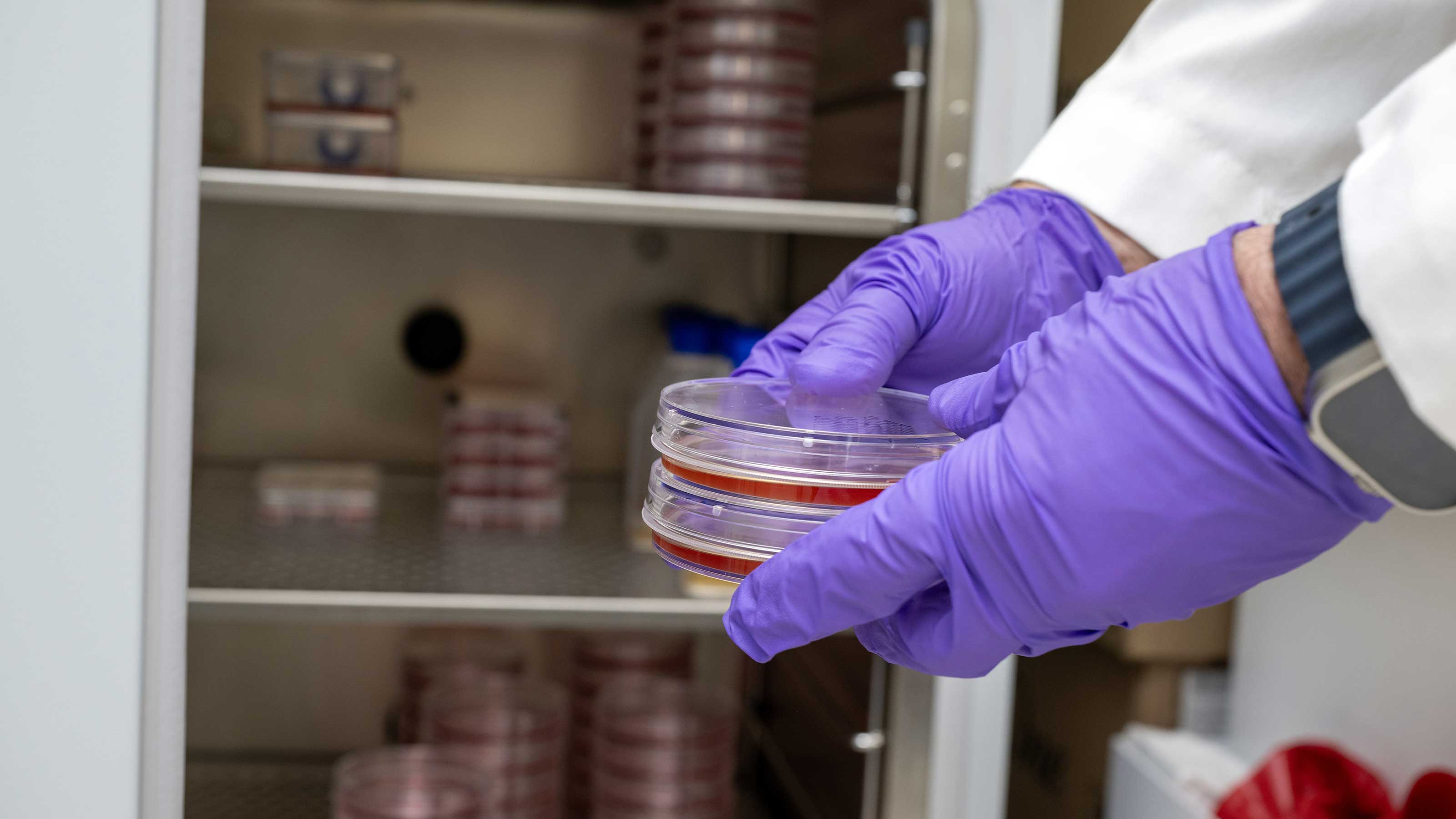Coworker gives highway patroller an unexpected gift: a new kidney
Secretary at Ohio State Highway Patrol office gives the gift of living kidney donation to a colleague in need.
A progressive disease was threatening Andrew Geer’s life. Geer, a sergeant with the Ohio State Highway Patrol’s Mt. Gilead office, has Alport syndrome, a genetic disorder that leads to severe kidney disease and hearing loss. His condition was discovered during a routine physical fitness test at the Ohio State Highway Patrol Academy, and it eventually led to his hospitalization in May of 2023. With his kidneys barely functioning, and after losing most of his hearing due to rapid disease progression, Geer was placed on the transplant list, hoping for a miracle.
An unexpected hero
That miracle came in the form of Tracy Harvey, a secretary at the same Ohio State Highway Patrol post. Geer was handing out cards with information to seek a potential kidney donor. He was hoping his colleagues would pass the cards on to family and friends, but Harvey kept the card for herself.
She decided to undergo the necessary tests to see if she could be a kidney donor for Geer.
One day, just after finishing his shift, Geer received a phone call from Harvey with news that would change his life forever. She was a match and was approved to donate her kidney.
“I started crying,” Geer said. “It was the best news you could ever imagine.”
“I’ll never forget,” Harvey says. “He said he felt like he won the lottery.”
Honoring two heroes
After successful surgeries, Harvey, and a few days later, Geer, were surprised with a clap-out outside The Ohio State University Wexner Medical Center, where a large group of family members, care teams, fellow coworkers and the Ohio State Highway Patrol’s then-graduating class stood in a long line to honor them.
“It was just amazing. I can’t even describe how speechless I was,” Harvey says. “What a wonderful feeling that was just to feel all the love and support from not only everyone I worked with, but everybody from Ohio State.”
Geer, whose twin brother is also currently fighting the same disease and will one day also need a kidney transplant, says that when asked if researchers could use extra tissue samples from his surgery for research into the disease, he didn’t hesitate.
“Absolutely. Go ahead. Anything I can do to help possibly find a cure for this or help anybody through this, I’ll do it,” Geer says.
Harvey, who initially didn’t tell her friends or family that she was being tested to see if she could become a living kidney donor, says, “I would tell anyone what an amazing, amazing thing to be able to give them their life. It’s hard to describe what an amazing feeling it is to give someone the opportunity to feel better.”
Why should someone donate a kidney to another person in need? Harvey has a simple answer.
“Why not?”

Ready to learn more about living kidney donation?
We've got all the information you need to start the process.
Learn more







